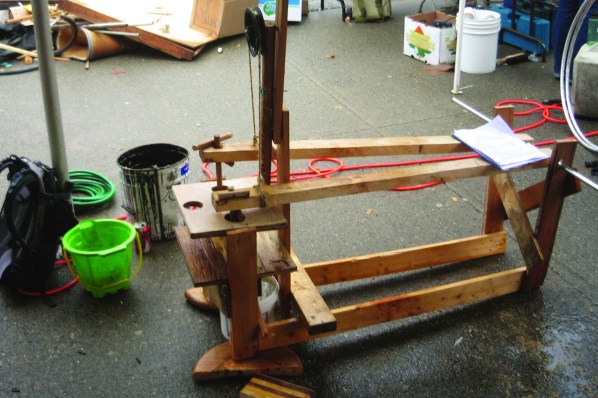
If you happen to live in rural Bolivia, building a water pump isn’t going to include a visit to the local hardware store or being able to plug into a power grid to operate a machine. So how do you get water?
This was the challenge given to Kara Serenius, Hessam Khajeei, Galvin Clancey, and Gaby Wong, a team of students determined to create a safe mechanism for groundwater recovery and hopefully win a prize at the same time.
The team was competing in the first annual Designs for a Sustainable World Challenge, hosted by Engineers Without Borders and the University of British Columbia’s Sustainability Office.
Student teams were asked to create an object to address a social economic challenge, building it in a short time frame and from what could only be described as garbage. Basically, this was akin to an ultra-sustainable episode of Junkyard Wars, with a heavy dose of social responsibility.
The design process for their solution — a human-powered treadle pump — necessitated a serious look at the development challenges in Bolivia, as well as a survey of the available trash you find in a university setting (lumber, metal rods, plastic piping, etc).
A total of 12 teams were armed with a few power tools and given time to plan solutions. Their tasks varied from increasing peanut-processing efficiencies in Bangladesh to devising ways to lower carbon dioxide emissions in China to capturing fresh water from the misty climes of coastal Ireland.
After frantic planning, a fairly detailed schematic of the treadle pump was produced. On the day of the event, six hours of frantic construction culminated in the final creation. In the end, not only did the treadle pump win first prize, but it also generated the loudest cheer when Wong stepped up on the pump and demonstrated that it did, indeed, work.
“The success of the event and the motivation of the students involved are both living proofs of the desire of today’s youth to have a positive impact on the world of tomorrow,” says Yifeng Song, one of the event coordinators. And the possibility of a little more fresh water isn’t bad, either.
ADVERTISEMENT






